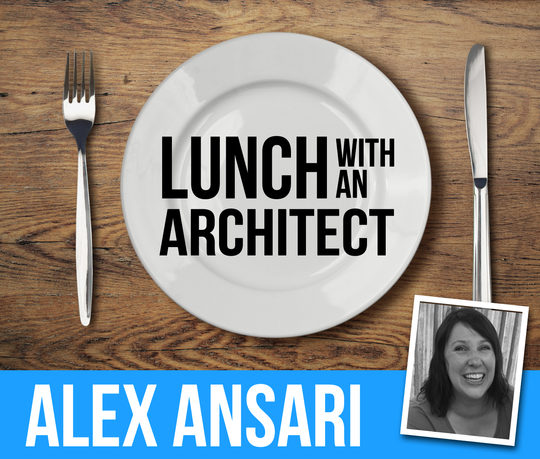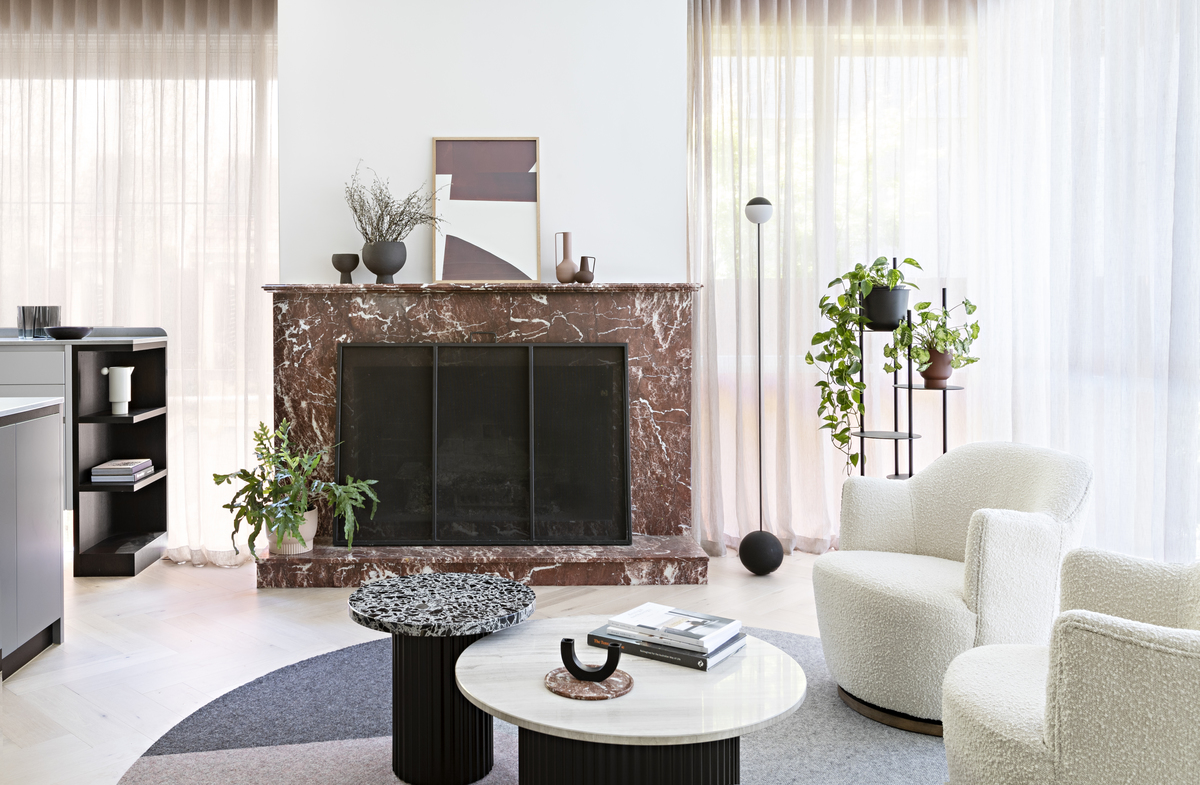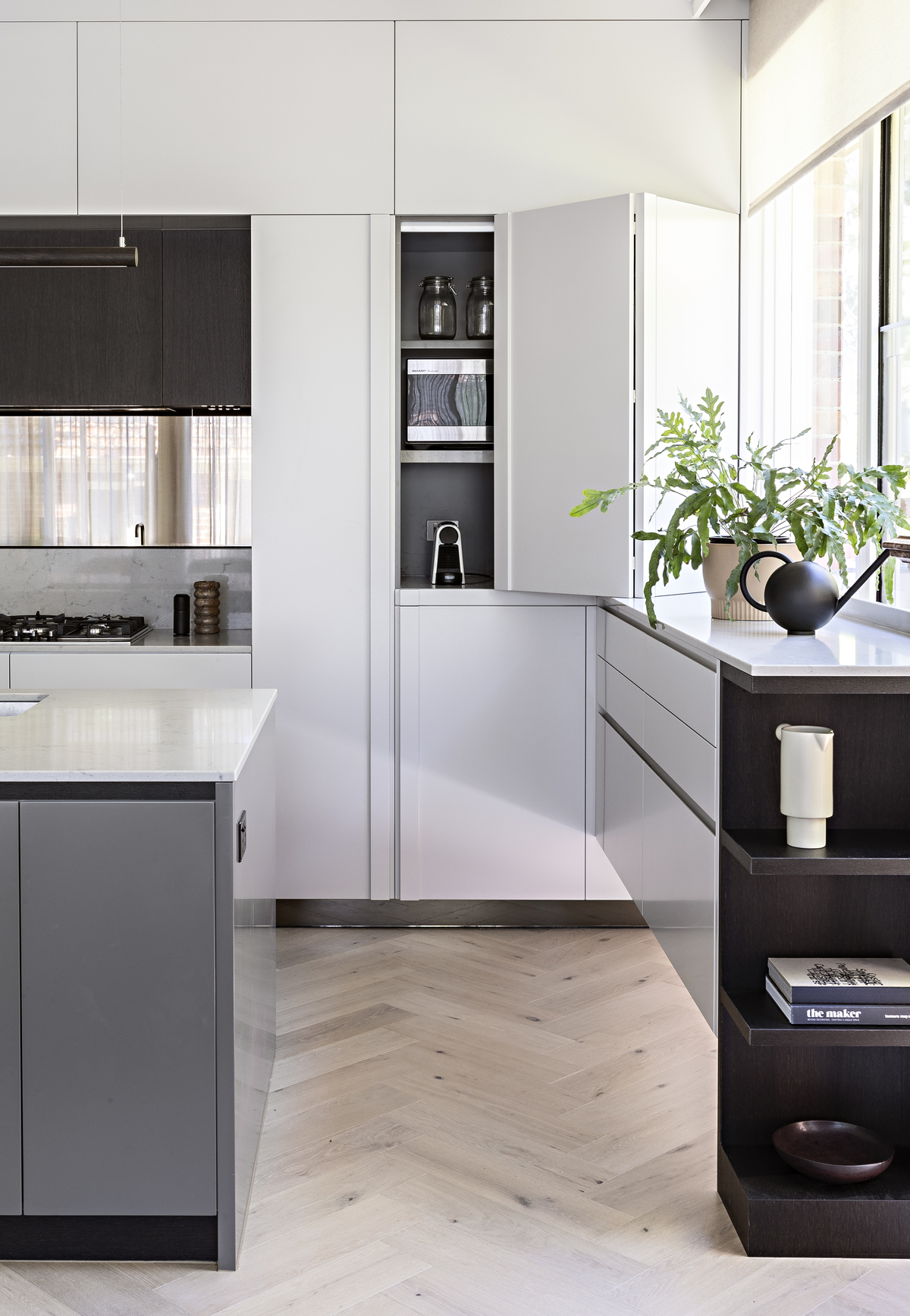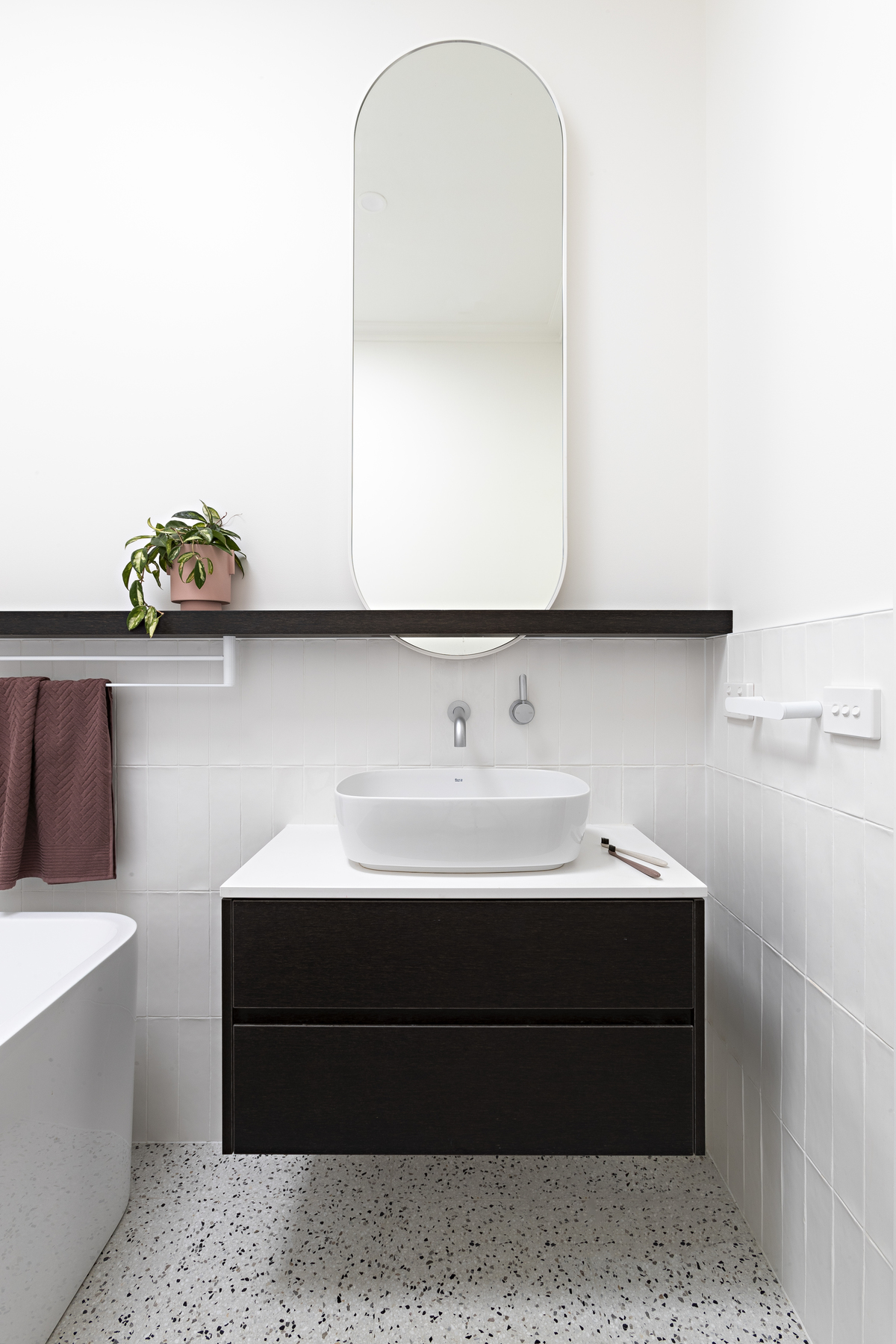Today we're joined by Alexandra Ansari, the friendly face behind Ansari Architects and we discuss everything from the best era of music to strong feelings about the most appropriate season for Christmas (we're looking to ban lyrics about snow in Christmas carols) and everything in between, including helpful tips for those looking to build or renovate. Let's get cracking!

Brodie: Welcome to Lunch with an Architect. And to kick things off, what is your favourite lunch?
Alex: I don't have a favourite lunch, really. If I have lunch, I try to have something really healthy, because otherwise, I can't keep working afterwards. And so I need to be super prepared for it, so like a salad or something. And if I'm super unprepared, it'll just be cereal or a cheese sandwich.
What drew you to architecture?
I'm not sure. I think it was always in me. My mum's dad was an architect in Germany. And I was always an organiser. It started with lists for horses. I always dreamed to have a horse or horses. So I would draw up what kind of horses they were, their names and what they would have to have. When I was around 14, I started drawing floor plans out of the blue. I actually had a look because, due to my mum's hoarding skills, they're all still there in a folder. I looked through them and they were never gargantuan floor plans. I obviously had an understanding of scale, they were drawn to a scale of 1:200. I was obviously fascinated by form, I would make forms, either letters or geometric forms and then fill them with a floor plan and try to make it fit. Then I went through the IKEA catalogue obviously, the Bible, furnish them and have lists beside them with prices or work out how much I could rent them out for.
Amazing! You've been making schedules since you were a teenager!
But it took quite a long time [to realise architecture is what I wanted to do]. When I finished school, I didn't go on to study architecture straightaway. I actually started studying economics and politics because I wanted to become a diplomat. I thought that's how I'd get to travel the world. That didn't go down so well, so I did that for a year and stopped. My final exam results from school weren't good enough to get into architecture at university, so I did drafting first and then after that, I got into university. So I was quite an old student - I was finished with university when I was 29.
So what made you realise that architecture was the direction you wanted to take?
I think I remembered the passion that I had for architecture and that I was always interested in it. After I dropped out of university with politics and economics, I started working in an architect's office by chance, actually, because a friend of mine, her dad was an architect. I started working there, and I loved it so much. And back then, while they had computers, it was mostly by hand. I was allowed to do some corrections by hand, you were only allowed to scratch so much, because otherwise, you would tear through the paper. And you know, I loved it so much I realised, that's it. I was so down that I didn't get into university, then I thought, well, I can do drafting. And that was just it, I was hooked! As soon as I did drafting, I knew that I would be an architect working for myself one day. I told everybody in that office, I would have my own office one day!
Wow, so even the idea of working for yourself was super appealing from early on. What do you think made you want to work for yourself?
I love working with people but didn't enjoy having to always ask, 'can I shift the toilet 200 millimetres to the right?', and 'what do you think of this?', and so on. I wanted to work directly with the clients to have that direct contact with the clients without going through someone else. When I worked in architectural practices, as a graduate architect or even as a registered architect, I was never the one that had direct contact with the clients and that's what I wanted. I wanted to get that brief. I wanted to be the one that put the designs together, and then brief others.
When did you start your own practice? How did that come about?
Oh, that was so lucky, actually. I had my daughter in 2009 and in 2010, went back to work and I worked in big offices. I went, this is not for me, I can't do this. It just jars so much with my lifestyle now and my work-life balance and what I want to do and so I pretty much quit without having anything else. Then I got in touch with an architect I knew from one of the big offices who had gone out by himself and was a sole practitioner. He said, 'you can work for me, on a one-or-two-day basis. So I did that for a while. Another sole practitioner contacted me and said, 'I'm looking for someone, part-time.' So I switched over to her and, after some time, she had to move overseas, so she left all her projects to me to take over, so that was my springboard.

Brighton East House by Ansari Architects
Do you have a very mild superpower?
Yes, I do and it's my patience. Yeah, I think I am super patient.
I'm sure that's very helpful with your clients.
Yeah, I think so. It wasn't always like that, but I've learned it and I actually enjoy it now. And yeah, I think it is actually very, very helpful with clients. They feel my patience and respond very positively to it.
You know, building or renovating can be a very stressful time. It's a big investment and there are a lot of decisions to make. So if someone can be patient with them, that would make the whole process so much easier.
Exactly. And, just being calming and keep reassuring them and saying to them, 'you know, just take all the time you need. This is about you. And this is your money. And this is your project. This is not about me. You will have to live in it. I'm your tool, just helping you to achieve what you want to achieve. I'm just here to give you my expertise.' I think they feel quite encouraged. Yeah, they like that they're not working with an architect that wants to press through their agenda, but that it's really about them.

Brighton East House by Ansari Architects
What's your favourite thing about residential architecture?
Meeting the clients, for sure. I find that it's almost a tad psychological. You think, 'how different can houses be?' But it's the people that live in it that can make every house so different. It's their little quirks and the things that they want. You get to know their deepest secrets because you have to, otherwise it's not them. It's quite revealing what you learn about your clients. I really, really love that and that they can trust so much in you. That's the best thing about it. Hence, I would never be drawn to commercial architecture, or even multi-residential projects because your client is so removed from the person who will live in the building.
Speaking of revealing, what was the first album you ever bought?
Well, I'm an '80s girl. I can't properly remember, but it would have been A-ha or Duran Duran or something like that.
And you'd still pop on a bit of '80s pop today?
Oh, absolutely!
Great period in music, it really was!
I'm sorry, it was the best! These days my daughter will listen to something and I say, 'Oh, isn't that Everything but the Girl?' And she says, 'No, no, it's DJ whoever'. I'm like, 'Yes. But he's stolen it from them.'
When it comes to residential architecture, what is the biggest challenge or perhaps, what's your favourite challenge?
My favourite challenge is restrictions in any way. I've never been engaged to design a new house and I'd love to design one, but I think what challenges me the most in a good way is working with any kind of restrictions. Someone wanting to fit a massive brief into the tiniest footprint. To try to really make the tiniest spaces still work in a functional way, just to see what's possible out there. I do really like those kinds of challenges. I think everybody can design on the green grass on a one hectare lot, but to make something functional and beautiful when it's restricted is a real challenge. Perhaps you don't get a lot of light in and there's a massive wall here and you only have two and a half meters to work with. That's where real knowledge and skill comes into play.
Is there a project of yours that you're most proud of and why?
It's always the last one.
There's always something new that you learn. That's why I love being on site, talking to the tradies. They really know what's happening on site and I learn from them what's possible. In the end, I'm still a desk jockey, just doing everything in theory, but I learn by talking to the guys on site and them going, 'yeah, that's how you could do it, but practically, we do it this way.' Then I can take that away and incorporate that into my drawings and I've learned something.
Ultimate dinner party time. Who do you invite and why?
I would invite Angela Merkel. I'm German and as the German Chancellor, I think she's done really well for Germany. And she is a woman in politics. As much as politicians get a bad rap, I do admire politicians, because I don't think any of us want to have that job. Anybody who does that job deserves a little bit of respect. And so I'd love to hear a little bit from her. The same goes for Obama. I would like to invite him because I think he's one of the only sensible presidents the US ever had. I'd invite Jesus because there's so much stuff floating around about him and I'd just like to know, what's right, what's wrong and what he's thinking about all the stuff that's going on now and discuss what he thinks about Christianity and religion in general. And, to lighten the mood, and also because I really like him, I would invite Dilruk Jayasinha. He's an Australian comedian from Sri Lanka. He does really good stand up comedy. He's hilarious but also very insightful.
What is your favourite season and why?
Spring, for sure. Even when I was living in Germany, I loved it already. But here in Australia as well. Although here in Australia I actually don't mind any season. I think I really found my country here. I love that Christmas is in summer. New Year's is in summer. It's just brilliant. It just feels right. They should stop playing all the 'it's snowing' Christmas songs. But yes, spring definitely. Everything coming up out of the ground in nature and it's slowly getting warmer again.
What's something about architects that you wish more of the general public knew?
That we're not earning as much money as everybody thinks!
Such a common misconception!
Everybody thinks we're earning loads of money and we're super rich. And I don't know, but I'm certainly not super rich and I don't know any architects that earn lots of money. I think, actually, most architects work for the passion and the job more than for the money. Weirdly I think it's more of a calling than a profession as such. So yeah, I think the general public should really know a little bit more about that.
I think that would be really helpful and it would help to put architects' fees into perspective when you realise how much time is spent on a project. It's not about making the most money, it's actually that it just takes a lot of work and a lot of knowledge and experience to do what architects do.
Absolutely. And how much it could save you in the end, in terms of money, time or things going wrong. I do understand that an architect is not for everybody.
I got this alert for a lady that was looking for a recent architecture graduate or interior designer to draw up a project from start to finish. It was a big Edwardian house with a complete renovation and she wants to do it herself as an owner-builder. I replied to her, and I said, 'I think you would be best to go with a registered architect. There is so much involved with what you want to do especially if you want to go owner-builder, you need as much professional advice as possible and a graduate architect or interior designer will not be able to give you that. I wish you all the best.'
I really felt for that lady. She was just thinking of the dollar signs and thinking going owner builder and paying less money for a graduate architect gives her the most money to spend on the build. But she couldn't see the reality of what is involved and how it can go wrong. It's people like her I just want to take by the hand and say, let me show you how wrong this can go because we're talking big money here. It's not as if she's just renovating a bathroom or something.
What's some helpful life advice you've been offered?
It was to always be punctual. I've always been quite polite, but I definitely missed the punctuality thing and the punctuality thing I learned from my husband. I think it goes a long way because if you're polite, but not punctual, that's not gonna go down well. But I'm not sure if that's life advice. It's a good lesson. But for phrases such as, 'live every day as if it's your last' - I don't buy into those.
Frank Lloyd Wright or Le Corbusier and why?
Probably Corb, but I'm more Bauhaus anyway. Form follows function. So yeah, more Corb, but definitely Bauhaus all the way.

Brighton East House by Ansari Architects
What's a piece of advice that you would give someone who was planning to build or renovate?
It's a hard one because I was at a client's who got so much advice that they were like a deer in the headlights and didn't know which advice to trust. I would say don't go on Instagram and look at all the pretty pictures there because that's terrible. Go to people that you trust: friends, relatives. See if any of them have built and gone through the whole process, and ask them for their experience. And listen to your gut, I think gut feeling is a really important one. The design and building process is a very long one. Those conversations early on at the start will never give you the whole picture. But I think your gut will always tell you if you can trust that person, if you will be able to have an open conversation with them and if you can be open and honest.
Is there a book or resource that you could recommend to someone who is planning to build or renovate?
Anything Dutch. Because Dutch architecture rocks. Yeah, just get away from all the Australian architecture, just step outside of that a little bit because Australia's very insular. Step outside the bounds of Instagram and what's getting repeated here. And I have to be blamed for that as well. Also look more at books and even older books a little bit. Because classic stuff will not go out of fashion. I love Dutch architecture, and Dutch interiors, and also Japanese architecture and interiors. But Japanese is a little bit harder to implement in Australia because they seem to be more laissez-faire with their building regulations. For example, I've seen stairs without handrails and that can't be done here.
That's a great suggestion to look at older resources because whenever I've looked through an older book, it becomes really obvious what kinds of things are just classic, and they're going to look good forever. There are really trend specific things which have obviously dated, but then you look at an image and it's timeless: a room that has beautiful light or beautiful materials and it still looks great, so it can be helpful to sort trends from classic good design.
Absolutely. That's why something by Le Corbusier or Frank Lloyd Wright will never go out of fashion.
Alex, thank you so much for joining us for Lunch with an Architect, it's been an absolute pleasure speaking with you and we can't wait to feature more of your work on Lunchbox Architect.